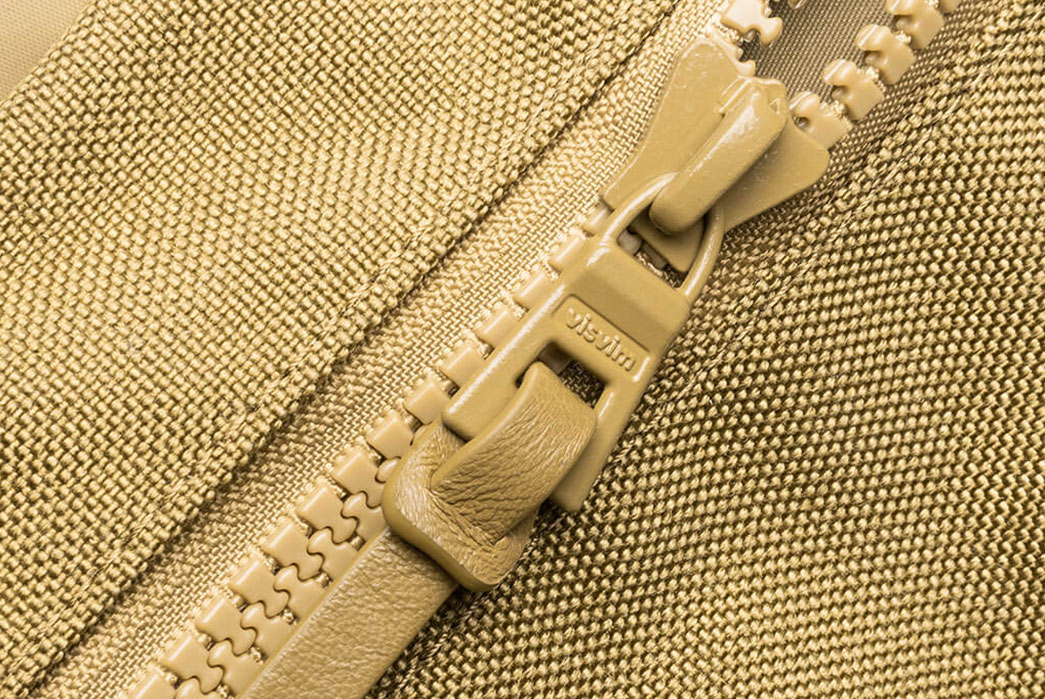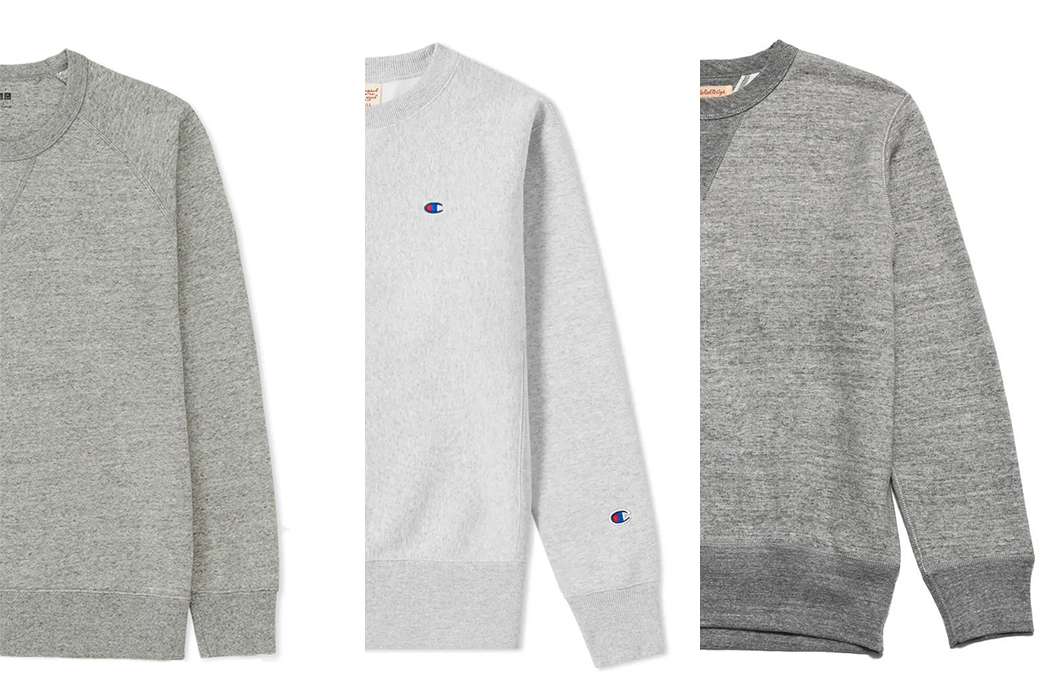- Heddels
- Posts
- Beyond Indigo – 5 More Natural Dyes
Beyond Indigo – 5 More Natural Dyes
Beyond Indigo – 5 More Natural Dyes
We dive deeper into the world of natural dyes, covering kakishibu (persimmon) dye, madder root, mud, and more.
James Smith

With denim grabbing the spotlight in the heritage fashion arena, it comes as no surprise that indigo often gets top billing when it comes to dye recognition. Natural indigo dye, in particular, has gained a lot of attention in recent years, with many brands working this traditional dye into their roster of denim goods.
But the world of natural dyes is by no means limited to the indigo blues—there’s a whole world of other dyes out there, all plucked from the earth. Today, we’re outlining four more natural dyes that you can use to dye your duds.
1. Kakishibu (Persimmon)

Kakishibu-dued denim via Naked & Famous.
Kakishibu is a traditional Japanese dyeing method that uses the juice of fermented, unripe persimmon fruit to create a tannin that will dye anything from textiles to wood and leather. Kakishibu dye is often subtle and irregular, with distinct shades that range from muted orange to burnished brown. It’s this inconsistency that makes Kakishibu synonymous with the Japanese idea of Wabi-Sabi—the art of finding beauty in imperfection. Persimmon tannins also have antibacterial and water-resistant properties, making Kakishibu a good option for undergarments.
Studio D’Artisan 16oz “Extreme Denim” 45th Anniversary Kakishibu Type II Jacket & Straight Leg Jeans, available for $380 & $326 respectively from Redcast Heritage.
Companion Denim’s 14 oz. 033A ‘Kakishibu Delight ‘denim, available on custom-made denim jeans from Companion Denim from $410.
Y2 Leather KB-140-T Kakishibu Persimmon Tanned Horse Hide Type 1 Jacket, available for $1,539 from Blue Beach Denim.
2. Grass
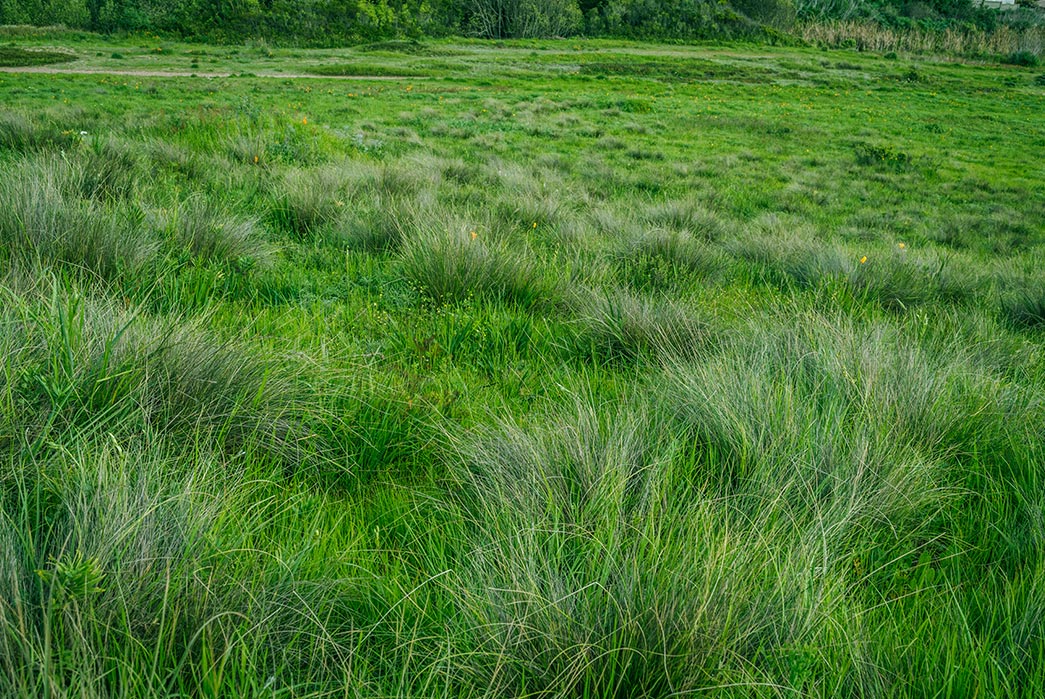
Image via Unsplash.
In the same way that grass can stain your shoes or your clothes, it can also be used to color whole garments. By concentrating the green pigment in the grass, deft practitioners can achieve a range of subtle green tones. Those tones are often so subtle that grass dye can be mixed with other dyes to achieve a subdued green cast.
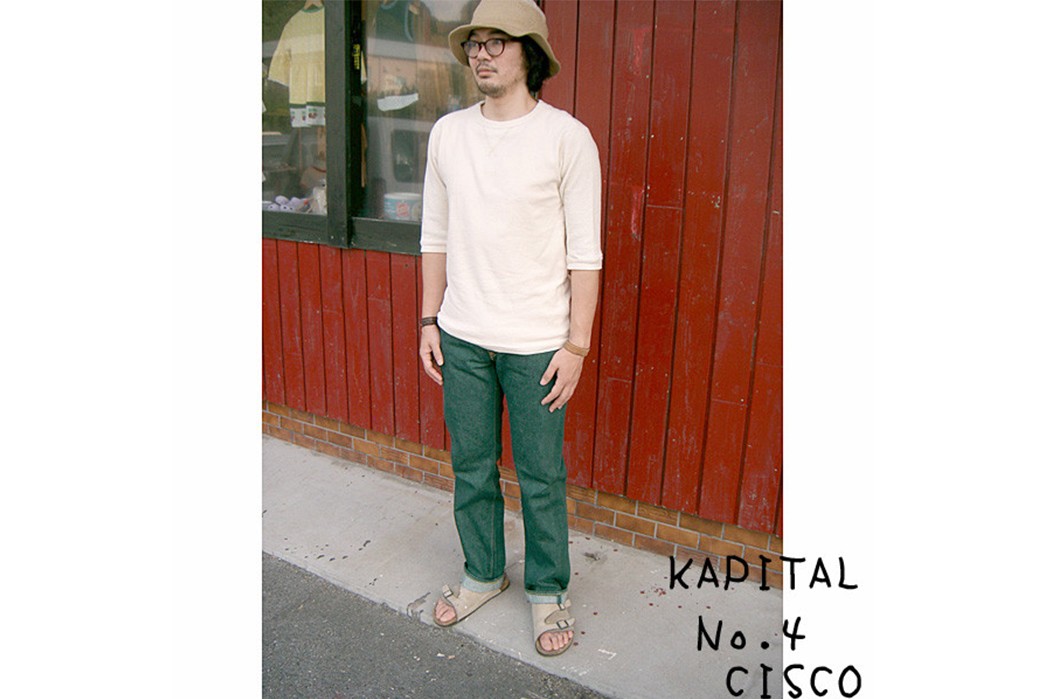
Far from conventional, it comes as no surprise that the eccentric Japanese brand Kapital used this method to dyeing an old release of their No. 4 raw denim jeans.
3. Carrots
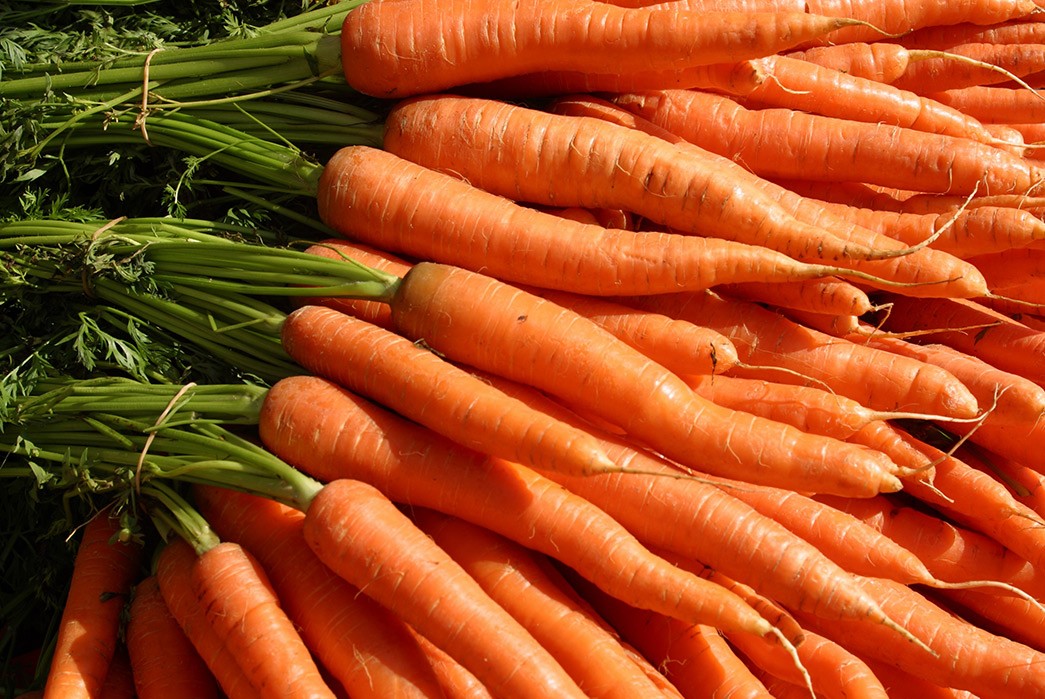
Image via Almanac.
While some natural dyes are more subtle than their artificial counterparts, carrot dye can yield a rich orange color that perfectly resembles the root vegetable. However, it is difficult to achieve a strong color, so this dyeing process is rarely seen on garments. That said, the English label, Tender, has been known to use carrot dye across a range of clothing, from socks to shorts.
Fukuroya, Shizuku, Kitchen Towel, Carrot Orange, available for $17 from Kiriko.
4. Madder
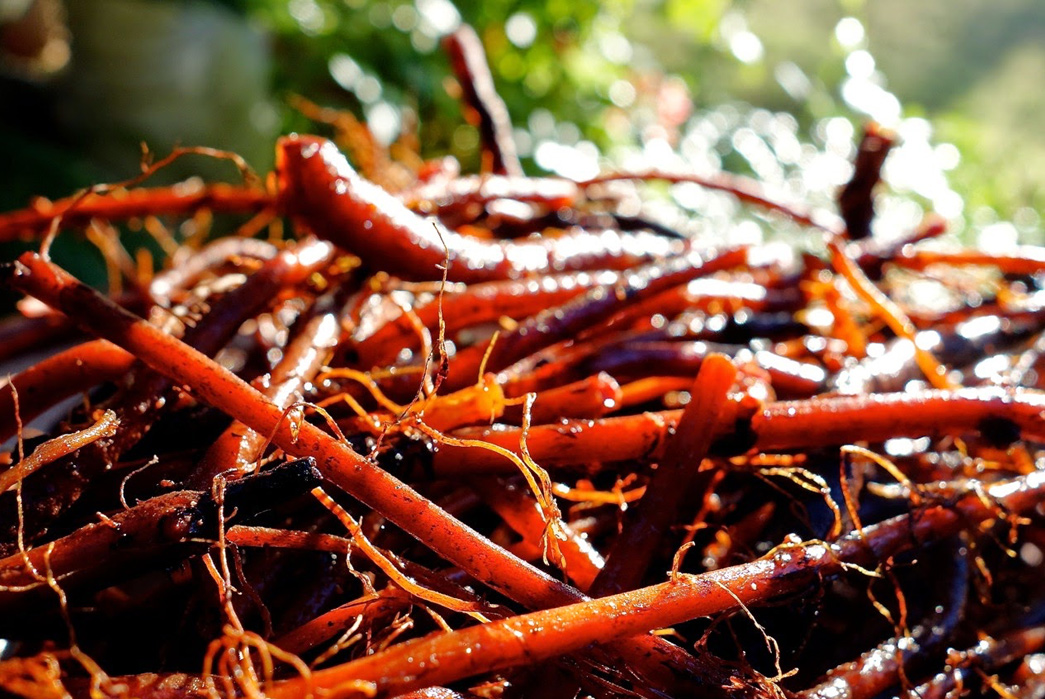
Image via Ever Green Knits.
The root of the Common Madder plant can be used to create a red dye. The plant’s roots are dried, chopped, and mixed with water and calcium carbonate (chalk) to form a dye bath, which can then be used to color yarns in a variety of red shades—all the way from rosy pink to hot red. Japanese madder-dyeing is often referred to as “Akane”.
Studio D’artisan SP-088 15oz 45th Anniversary “Tokushima Hinode-Awa Shoai” Type II Jacket, available for $759 from Redcast Heritage.
5. Dorozome

Dorozome in action via Visvim.
Dorozome is a mud-dyeing technique that originates on the Japanese Amami Islands. A preliminary dye is made by boiling the wood of trees indigenous to the Amami region. After soaking in this initial dye bath, the yarns or garments are soaked in iron-rich mud to initiate a chemical reaction that extracts the colors from the mud and locks them into the fabric. Different tones can be achieved—including jet black—but rusty browns and dark greys are the most common.
Studio D’Artisan “Amami Dorozome” (indigo overdyed with mud) 45th Anniversary Denim Type II Jacket and Regular Straight Jeans, available for $542 & $461 respectively from Redcast Heritage.
KUON Dorozome Dye Shirts, available at Clutch Cafe from $315
Like this? Read these:
What did you think of today's newsletter? |







